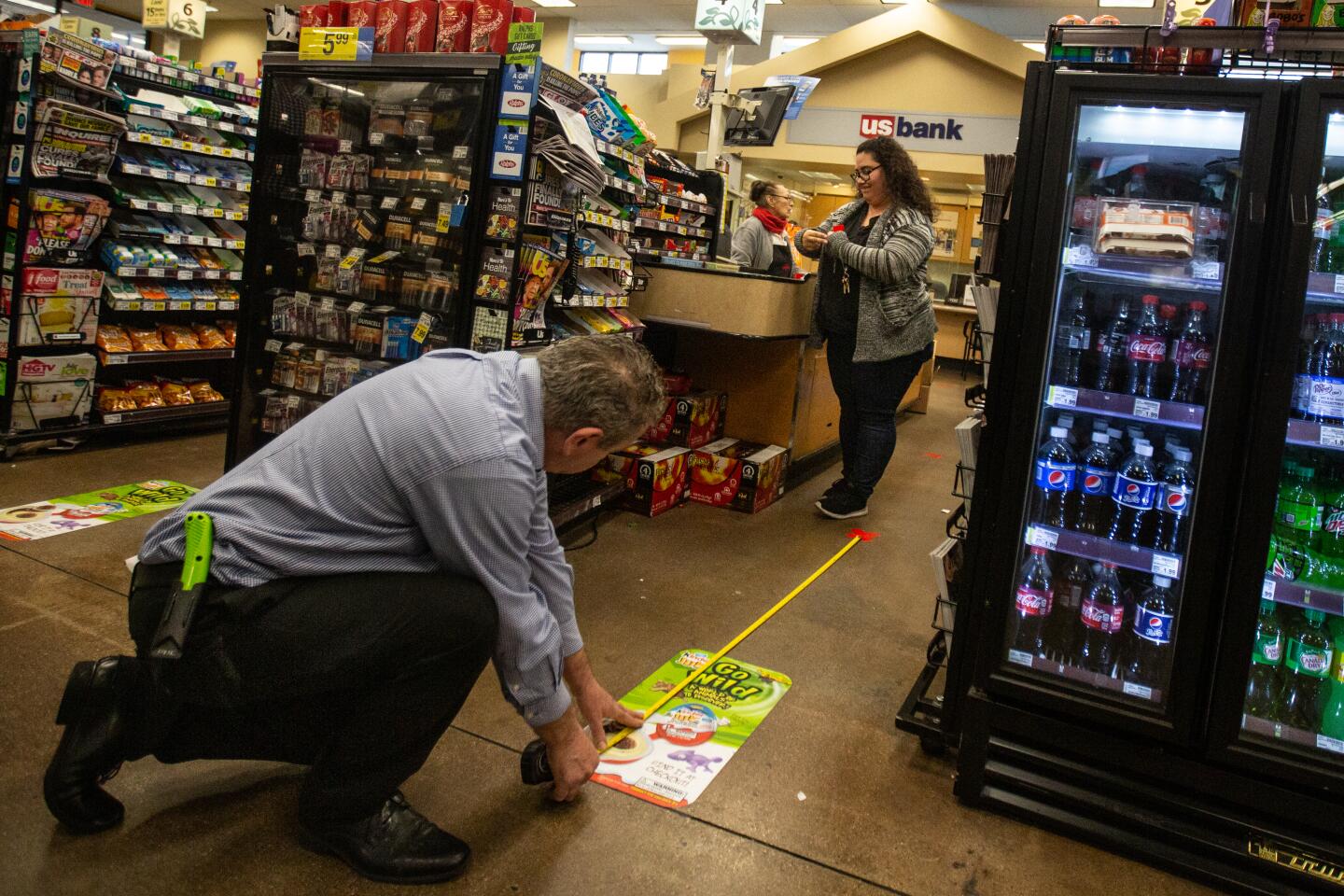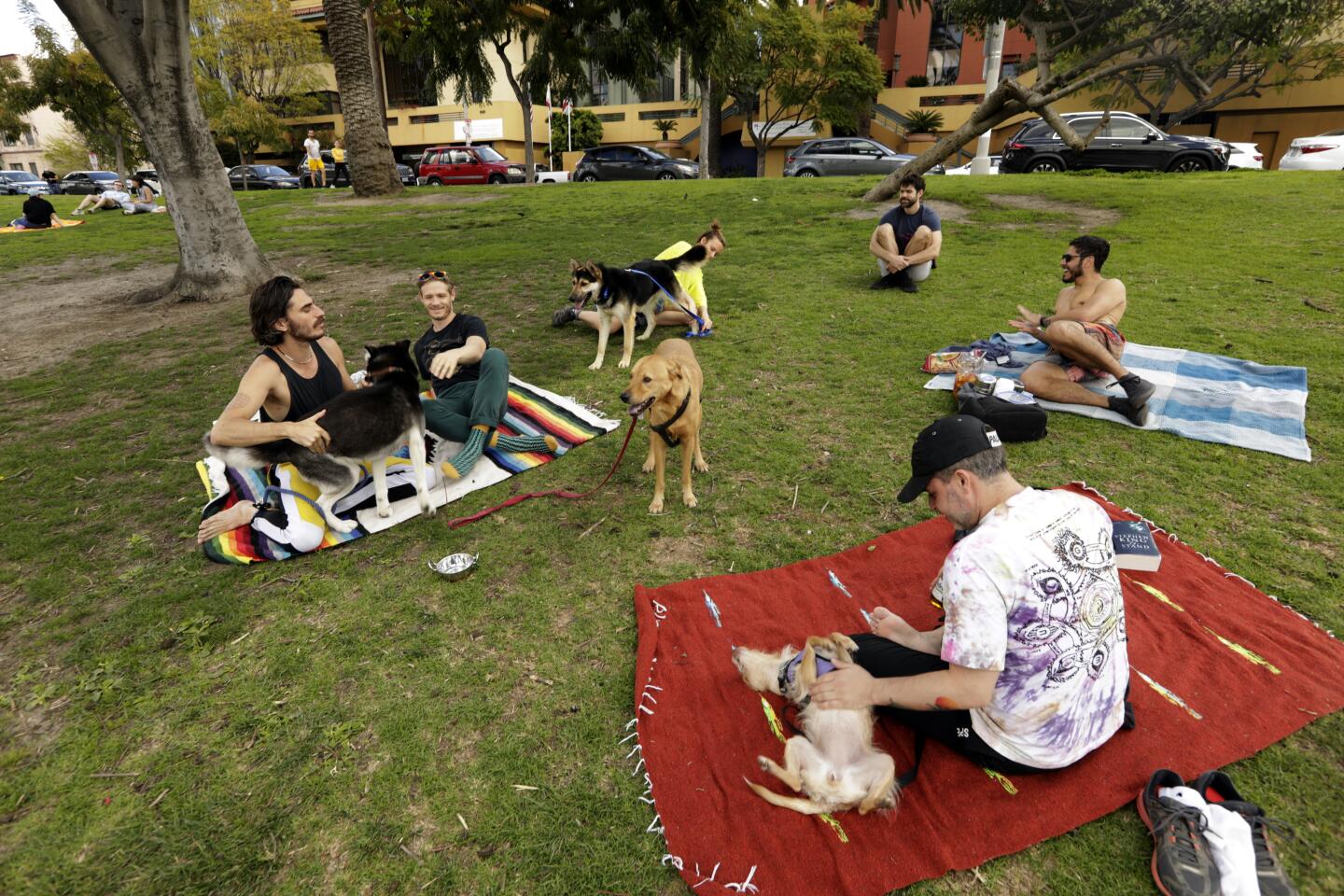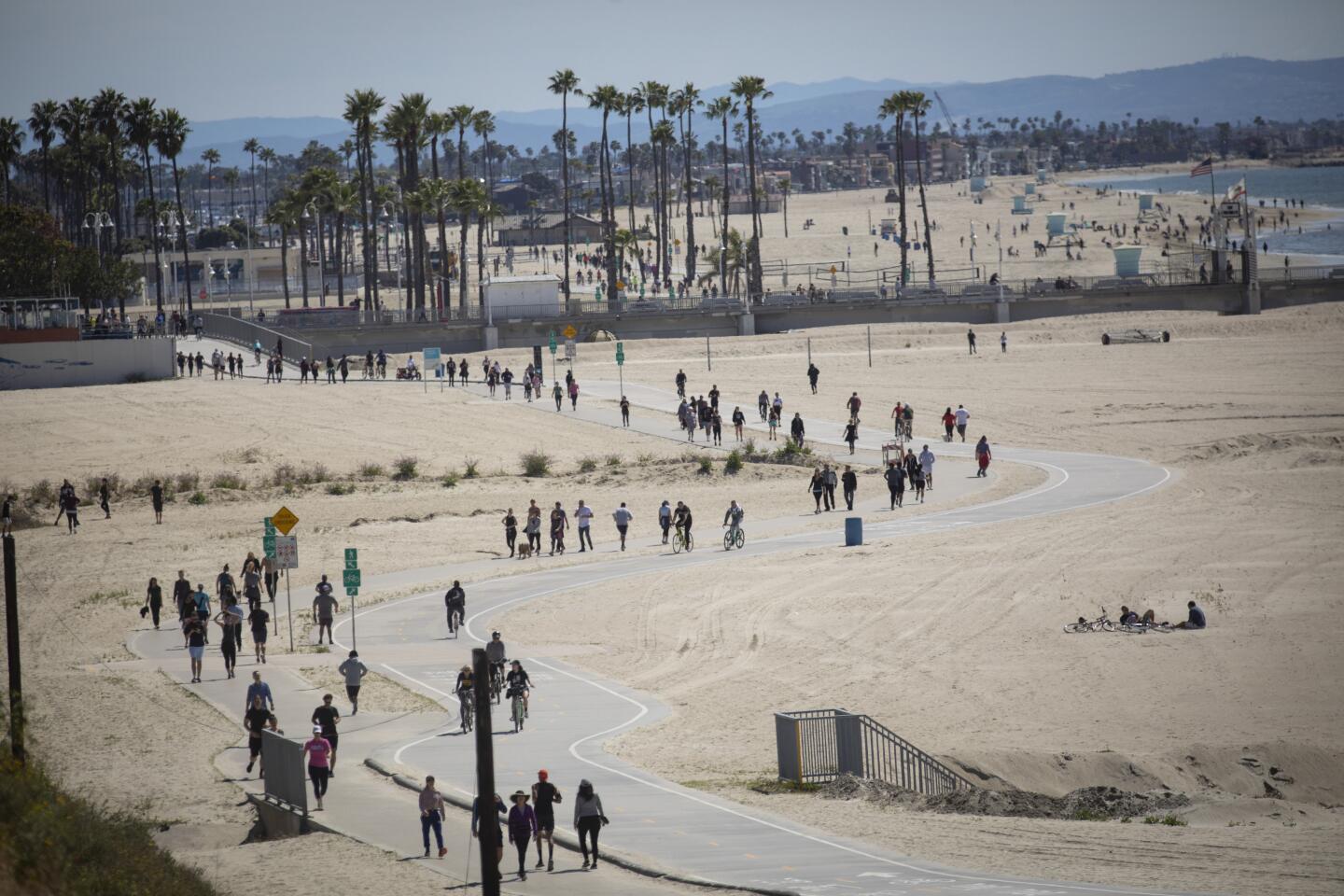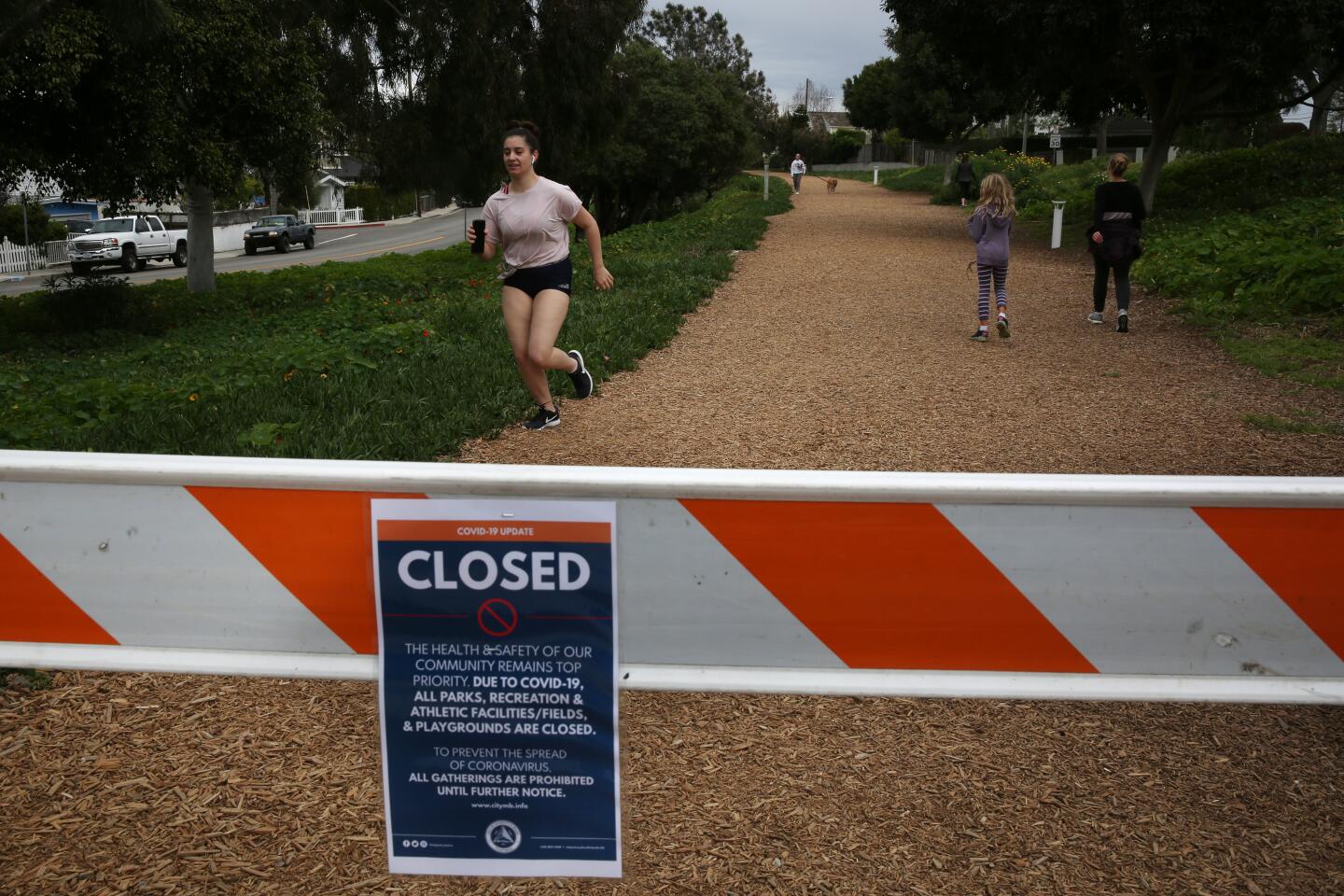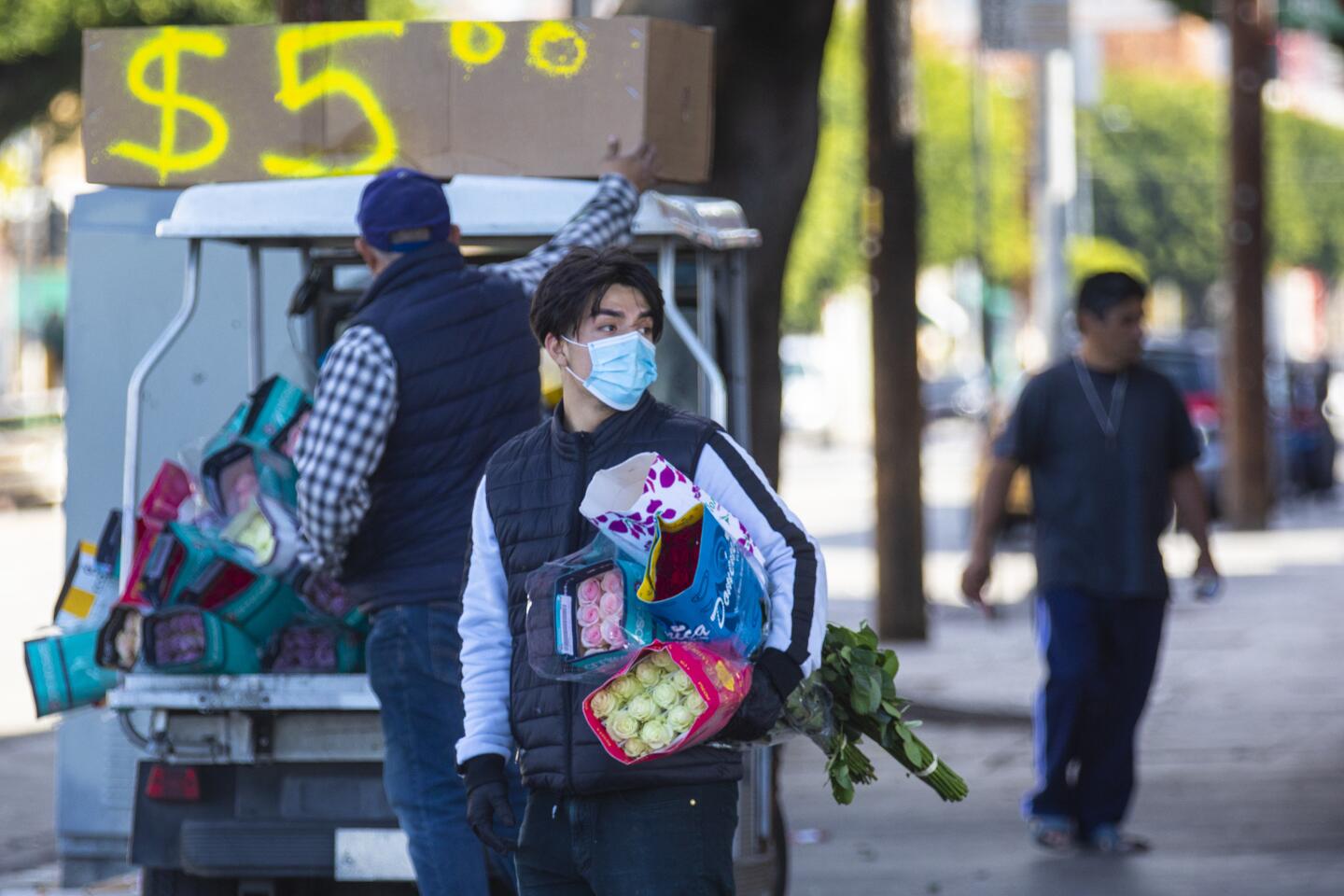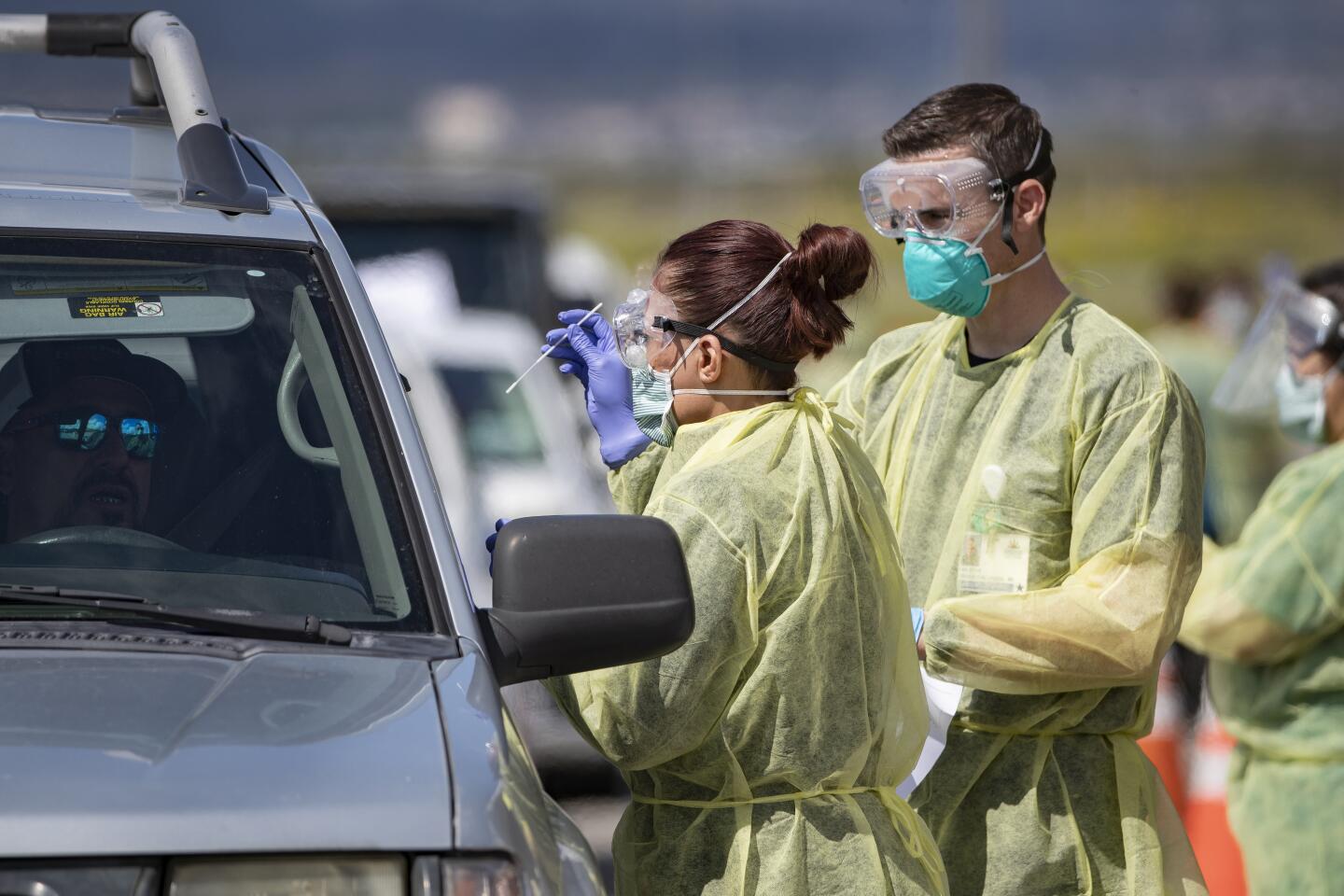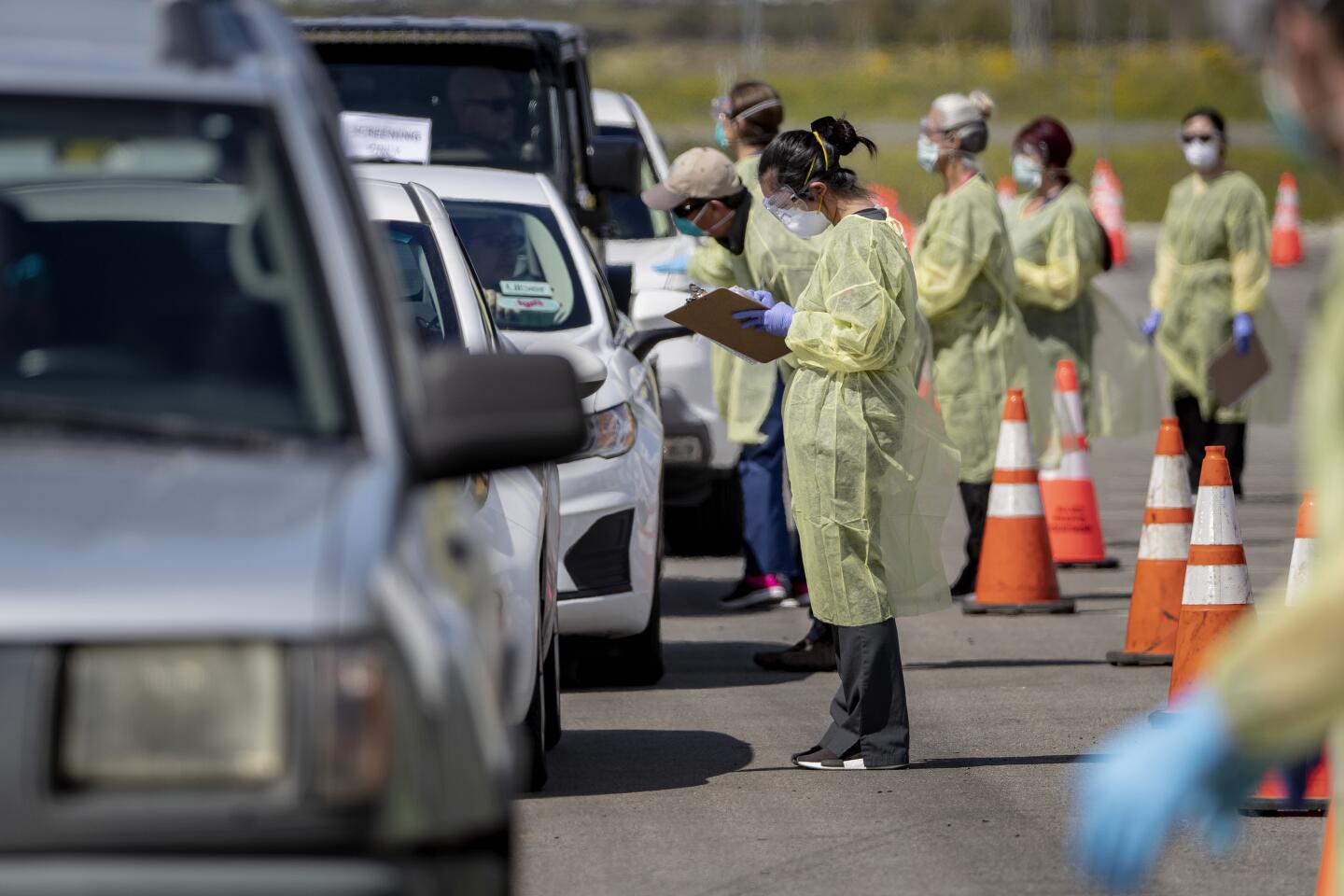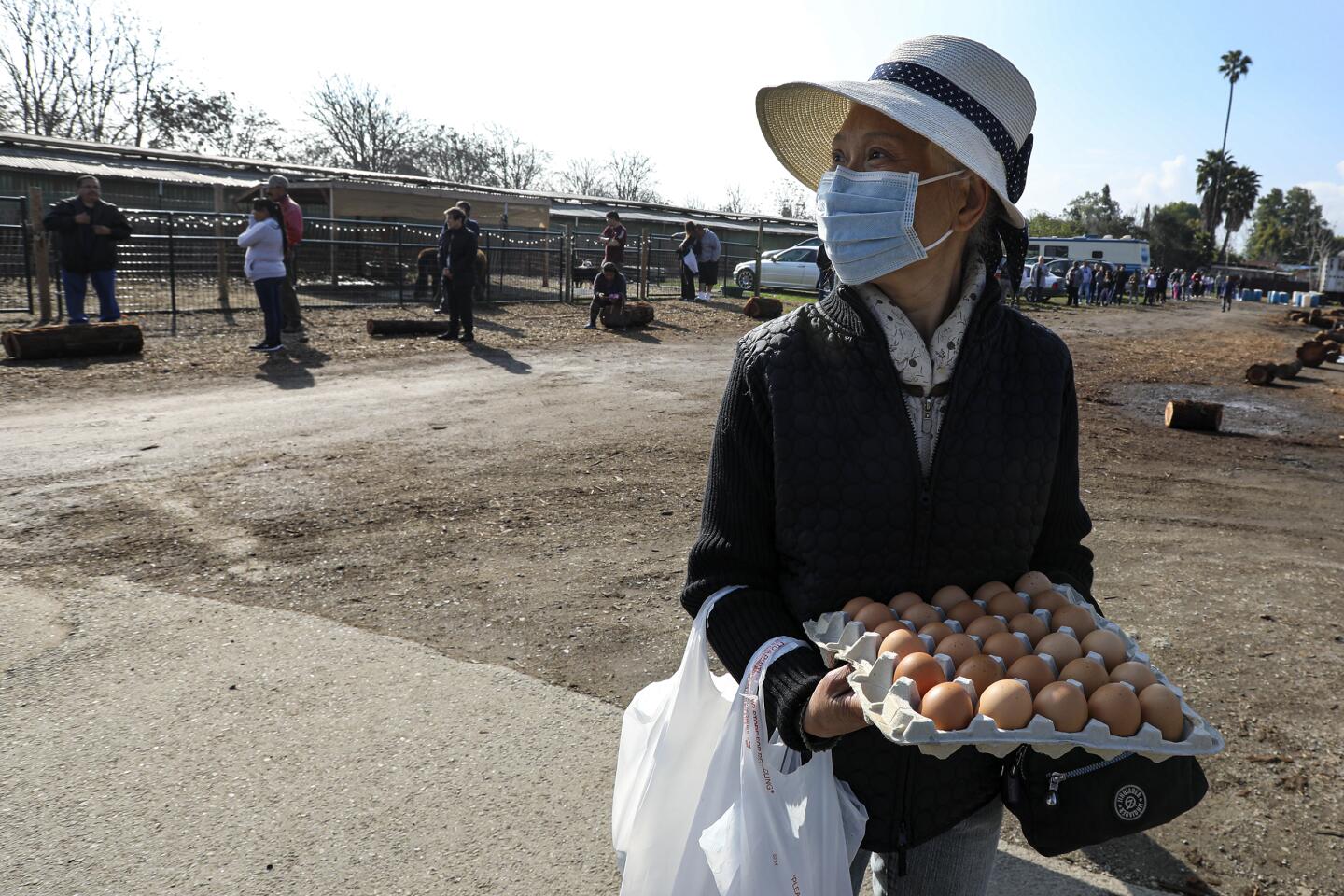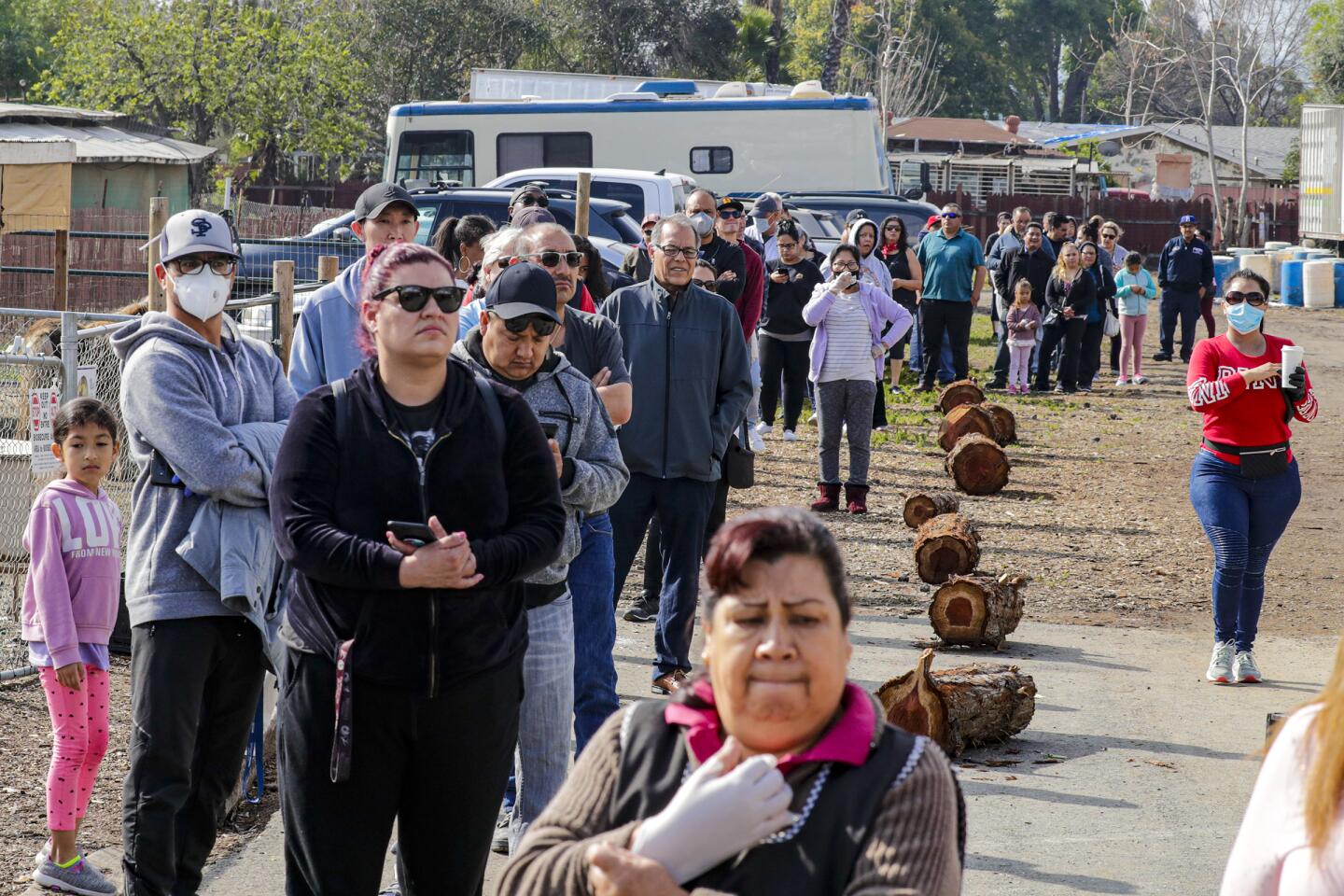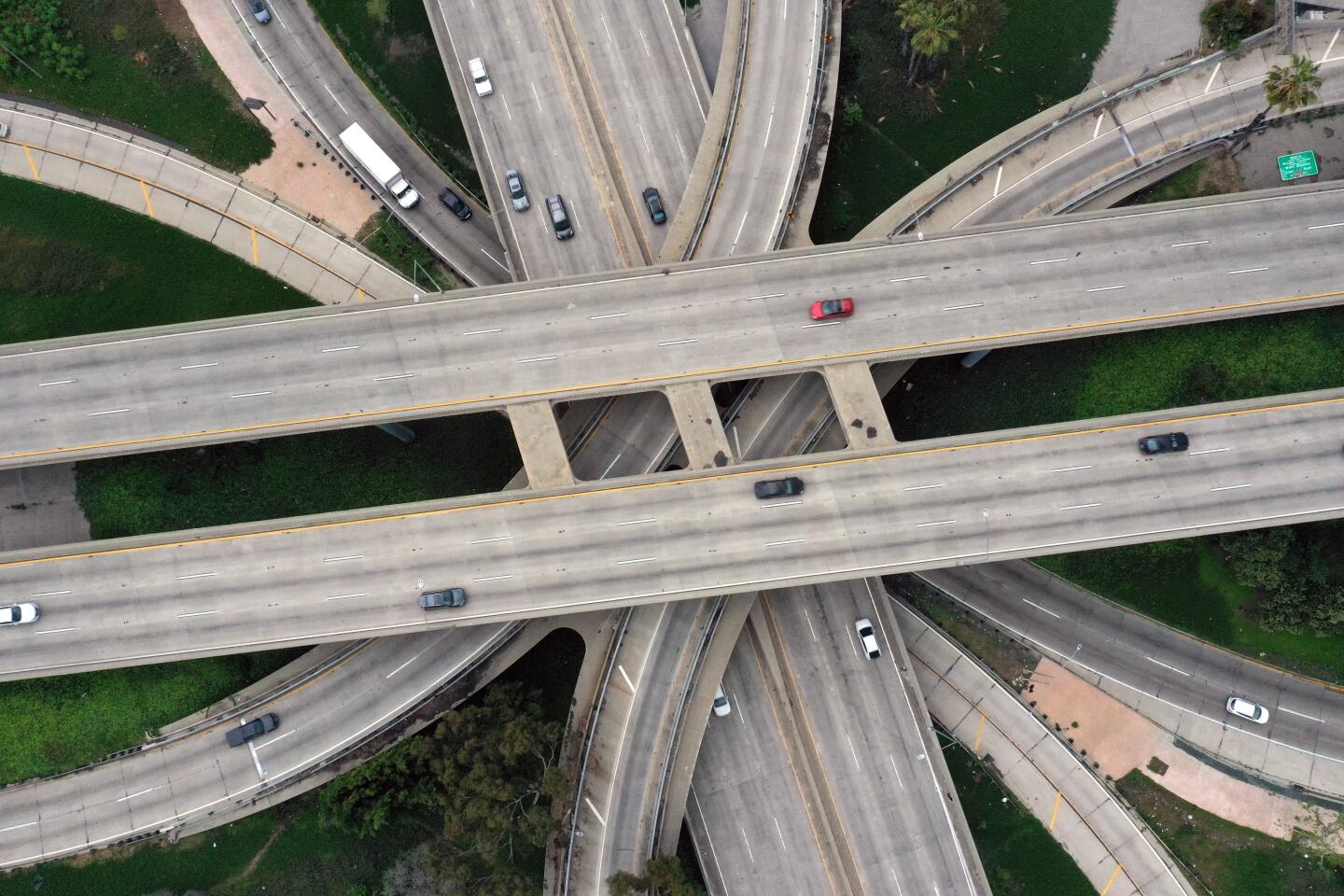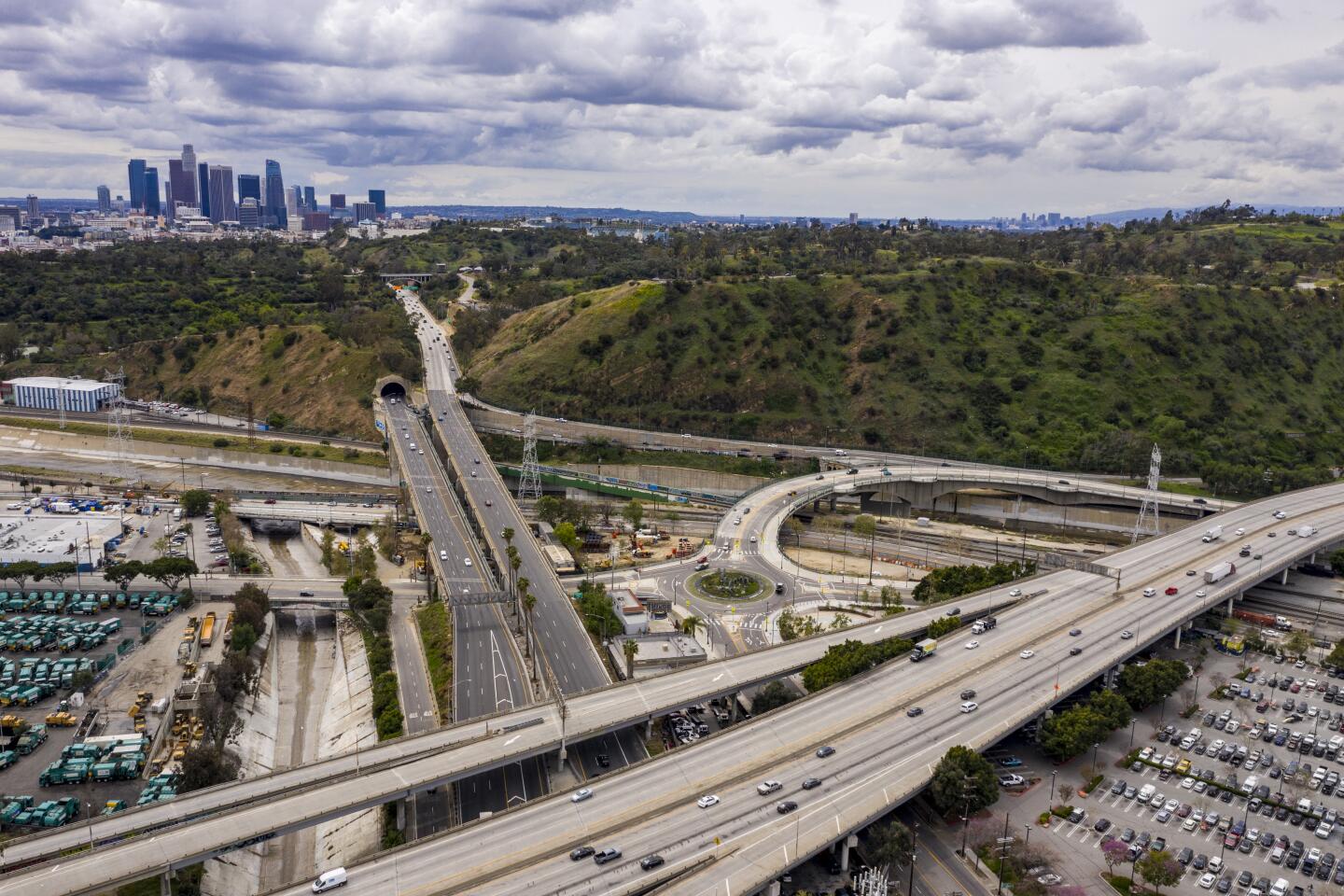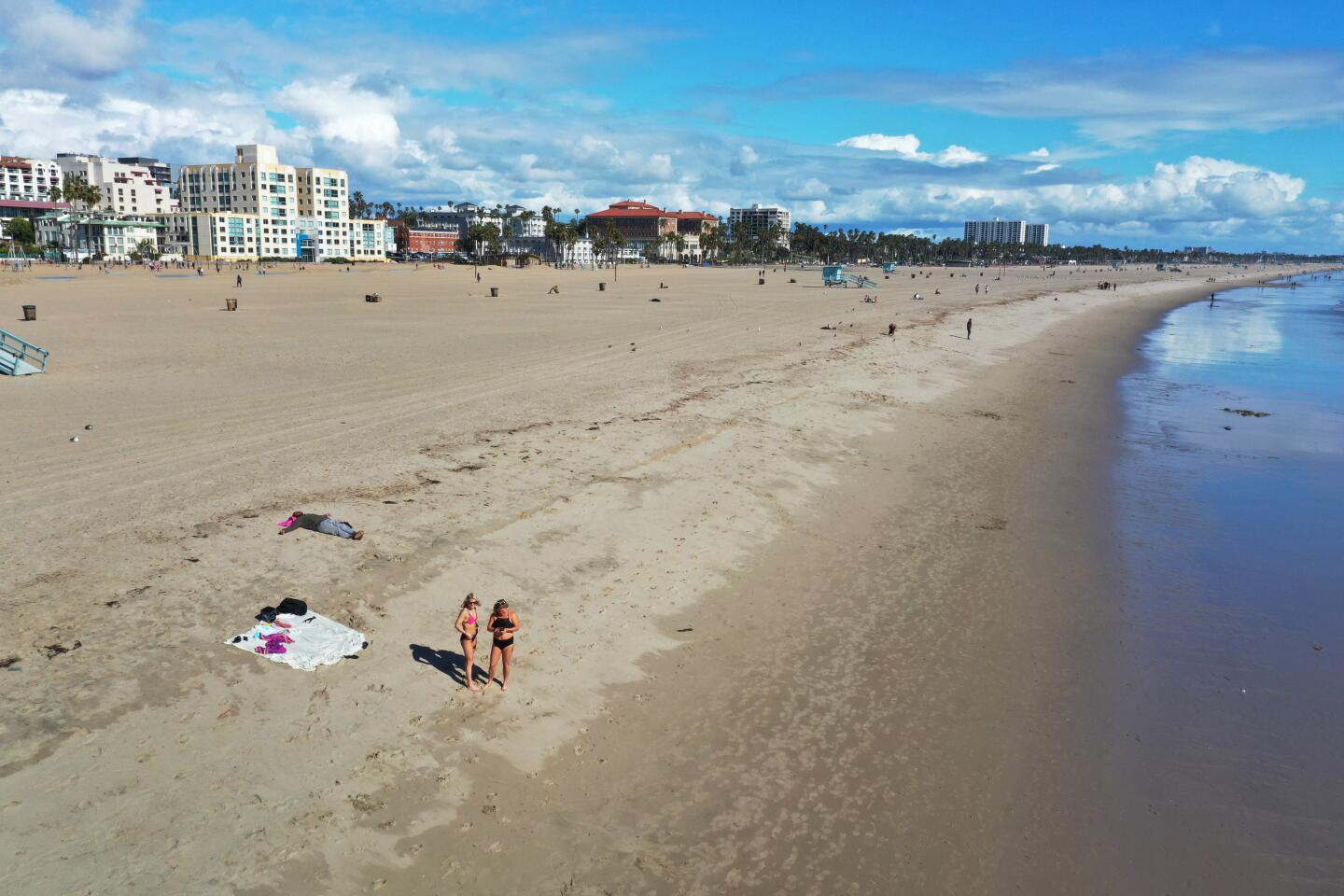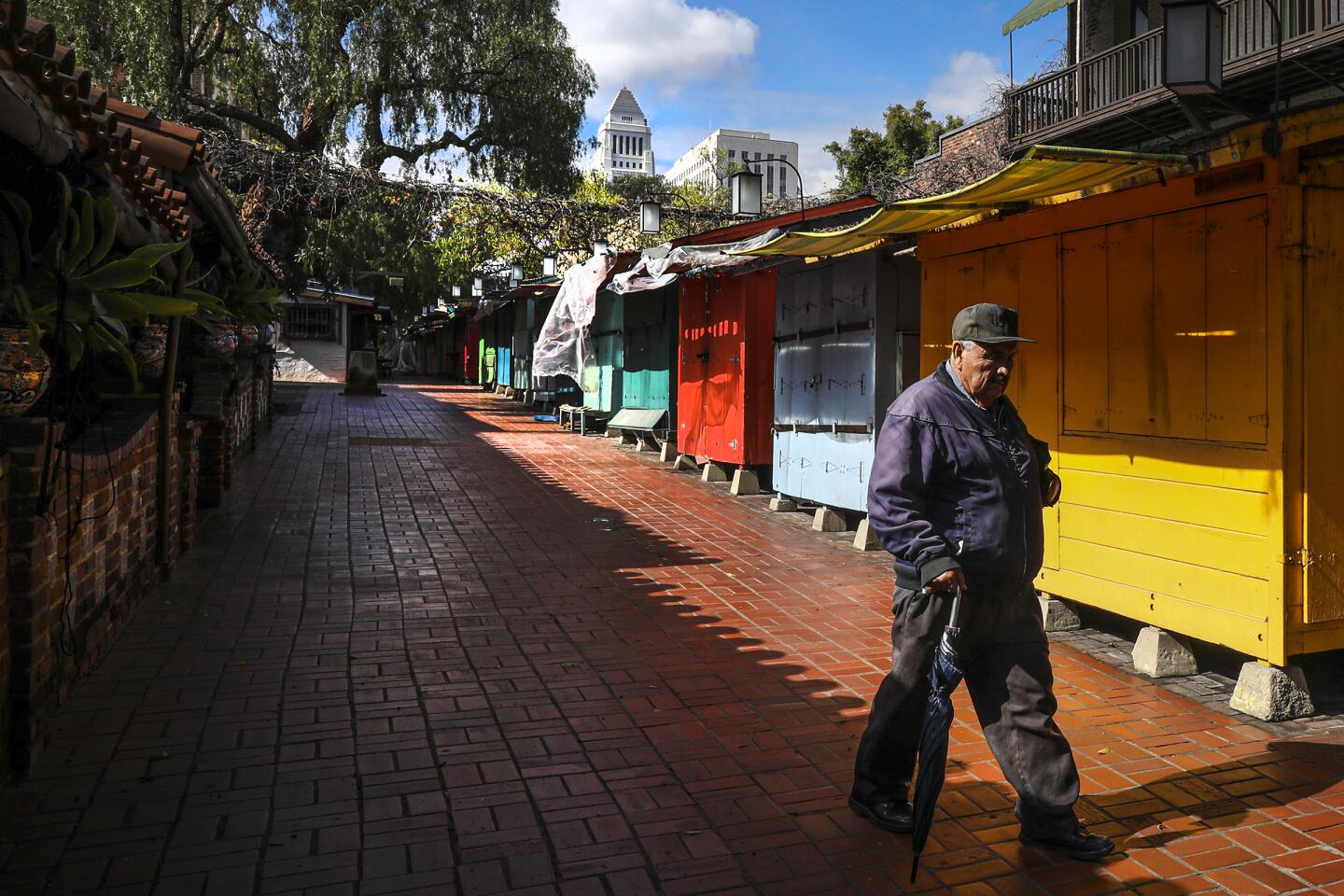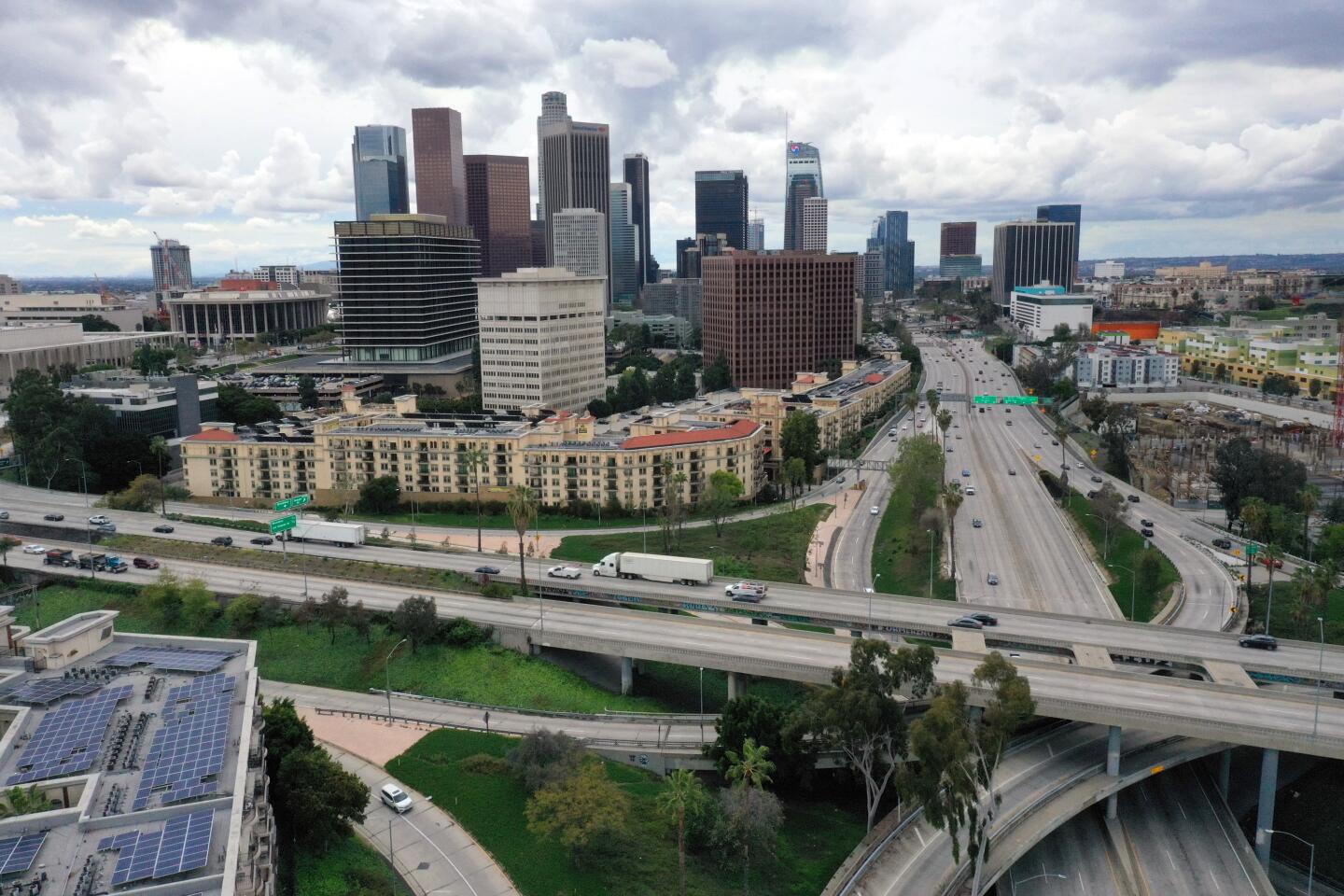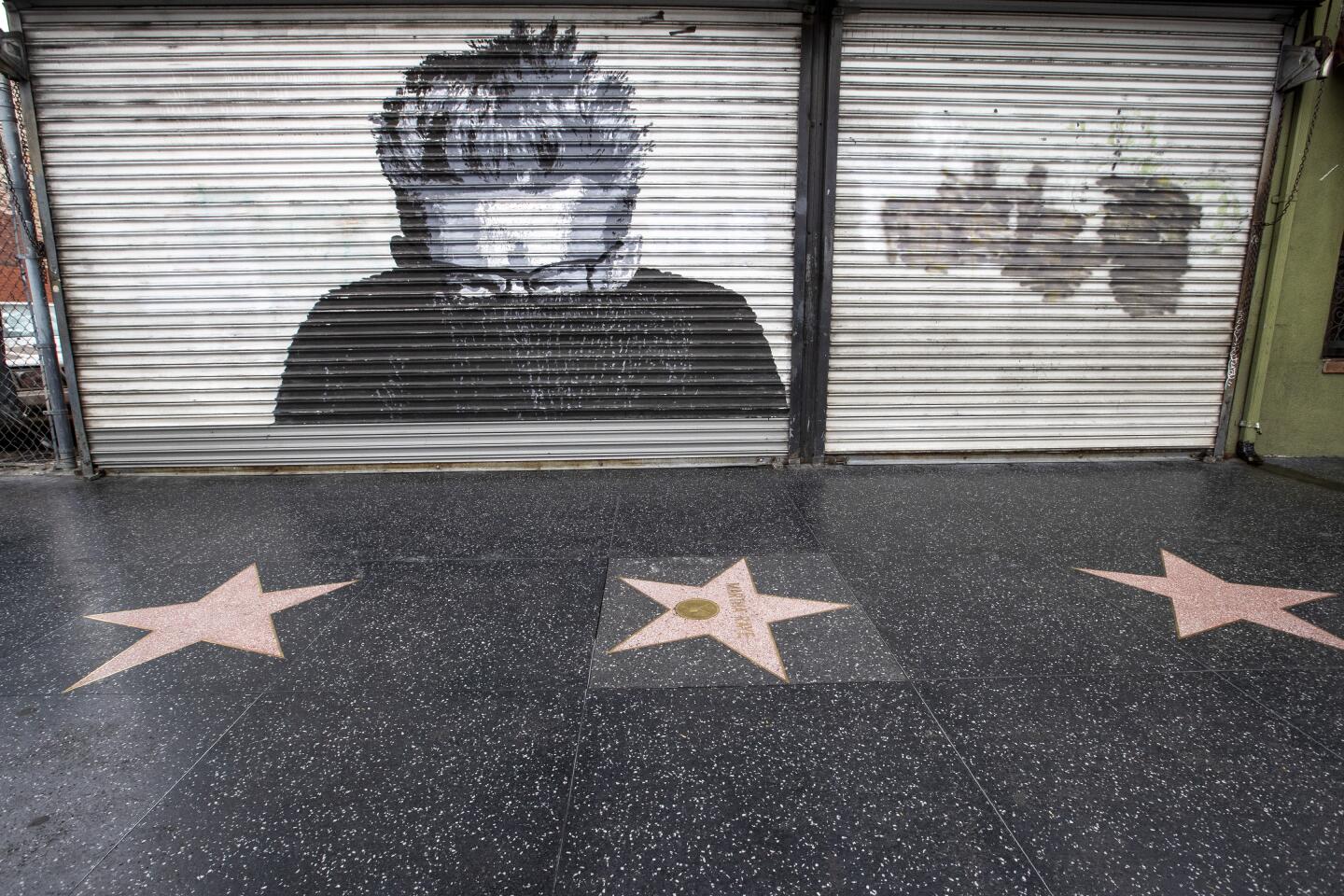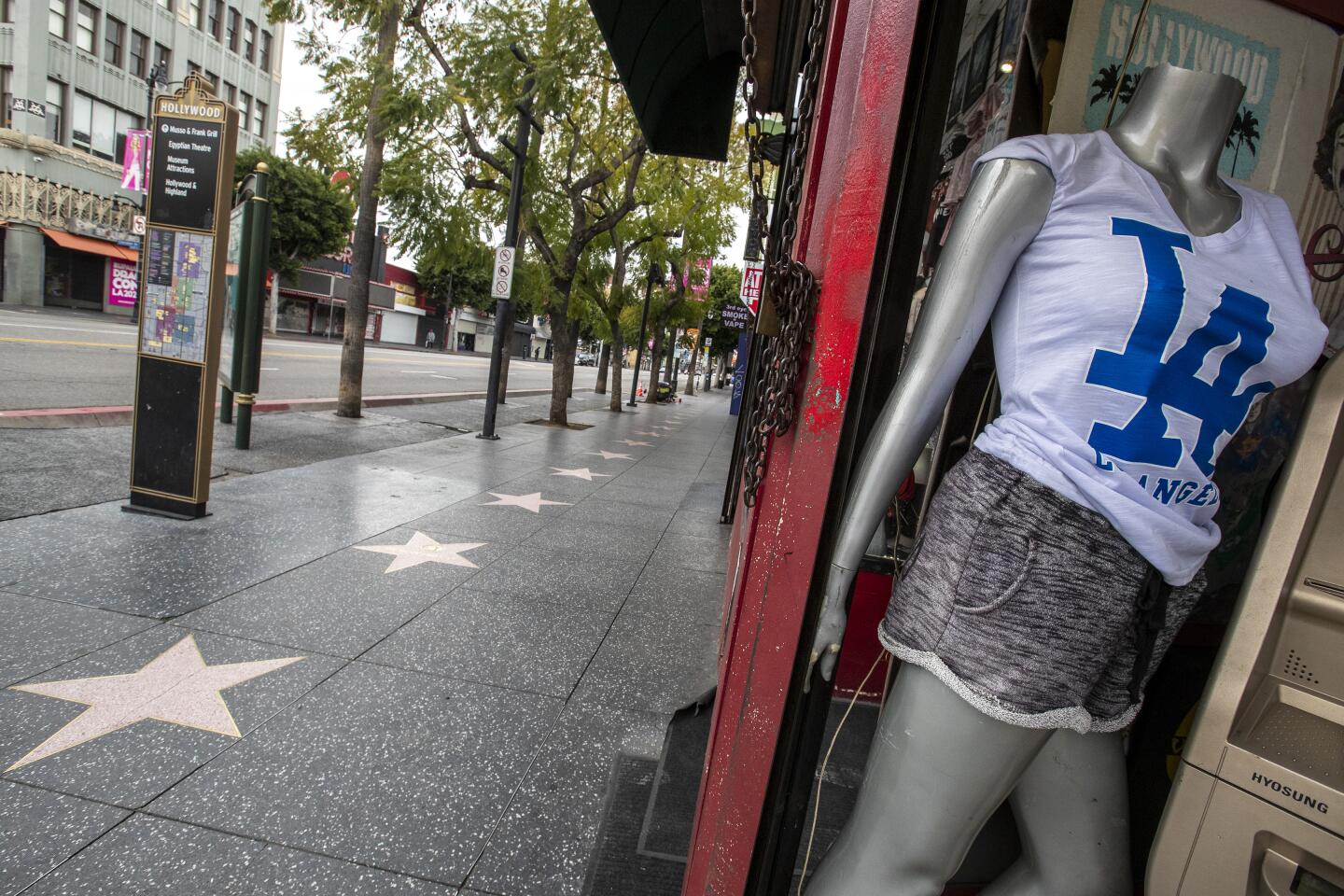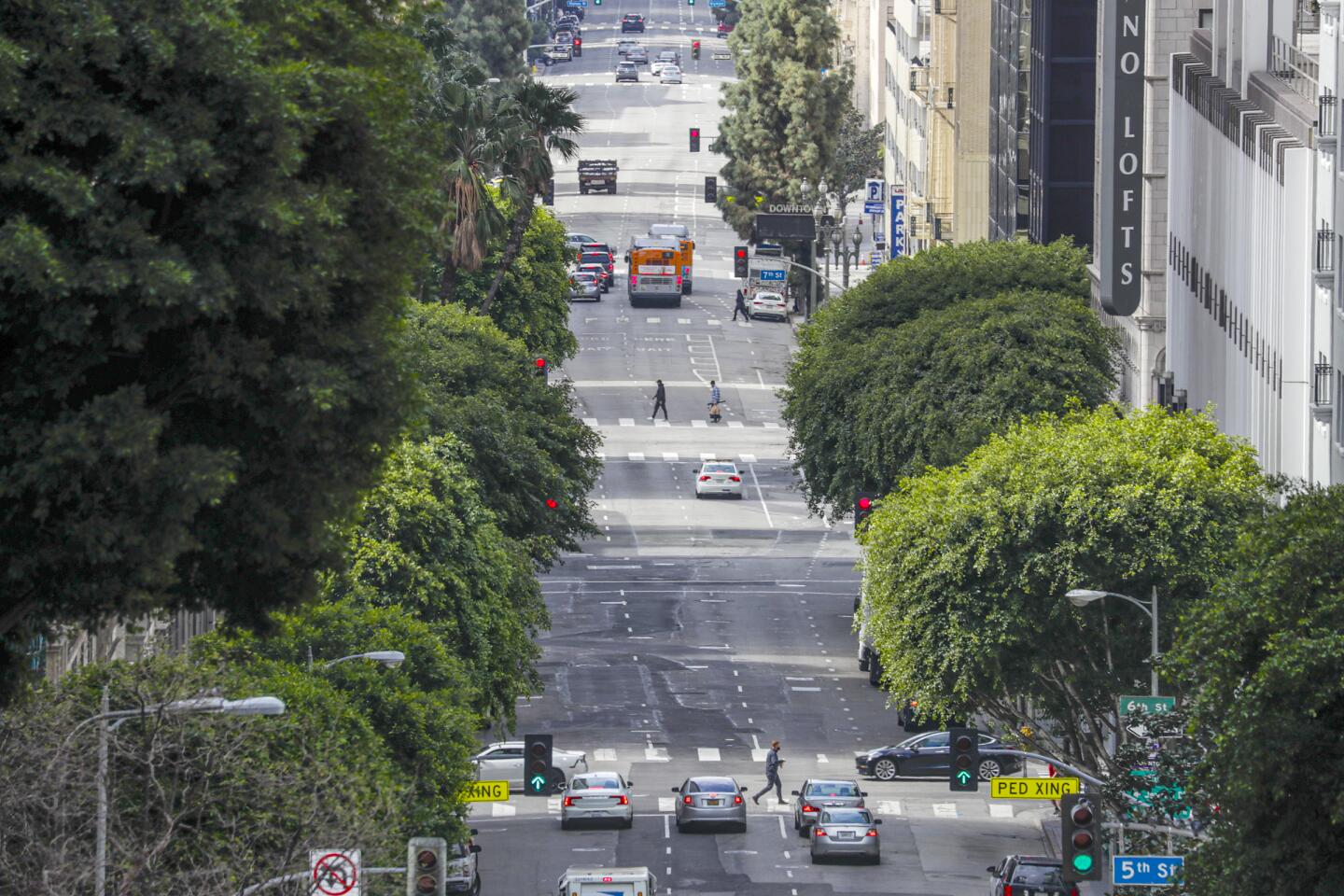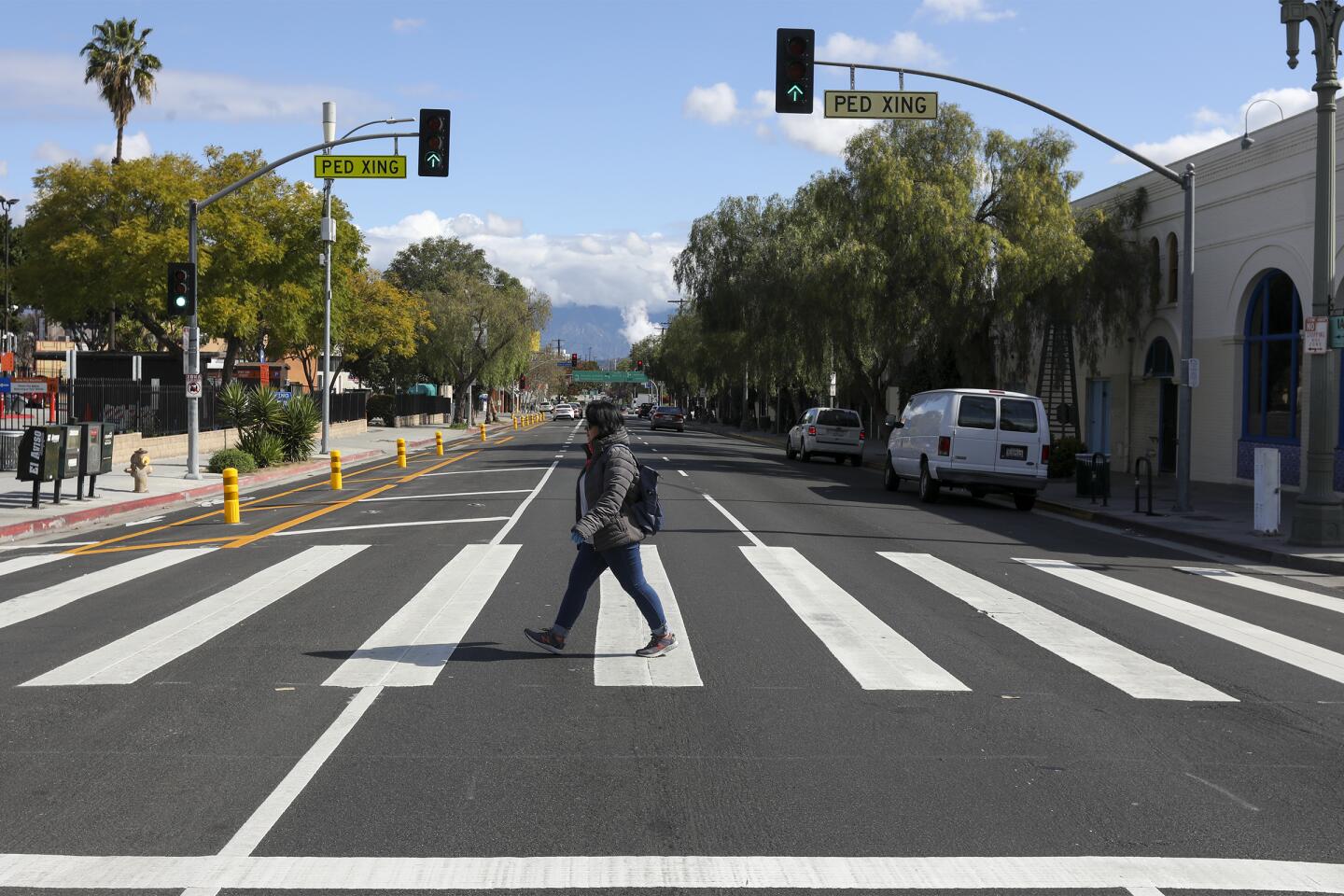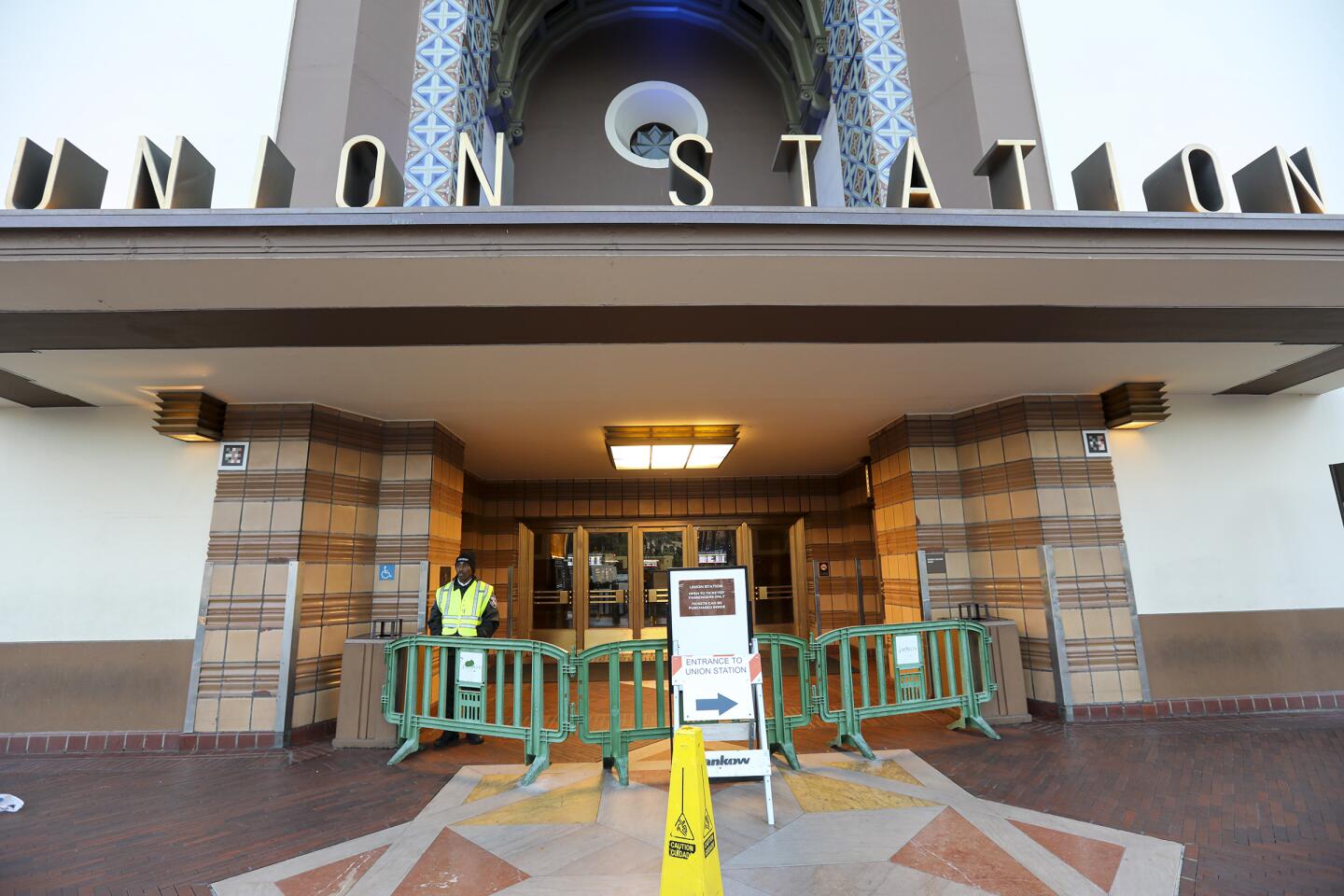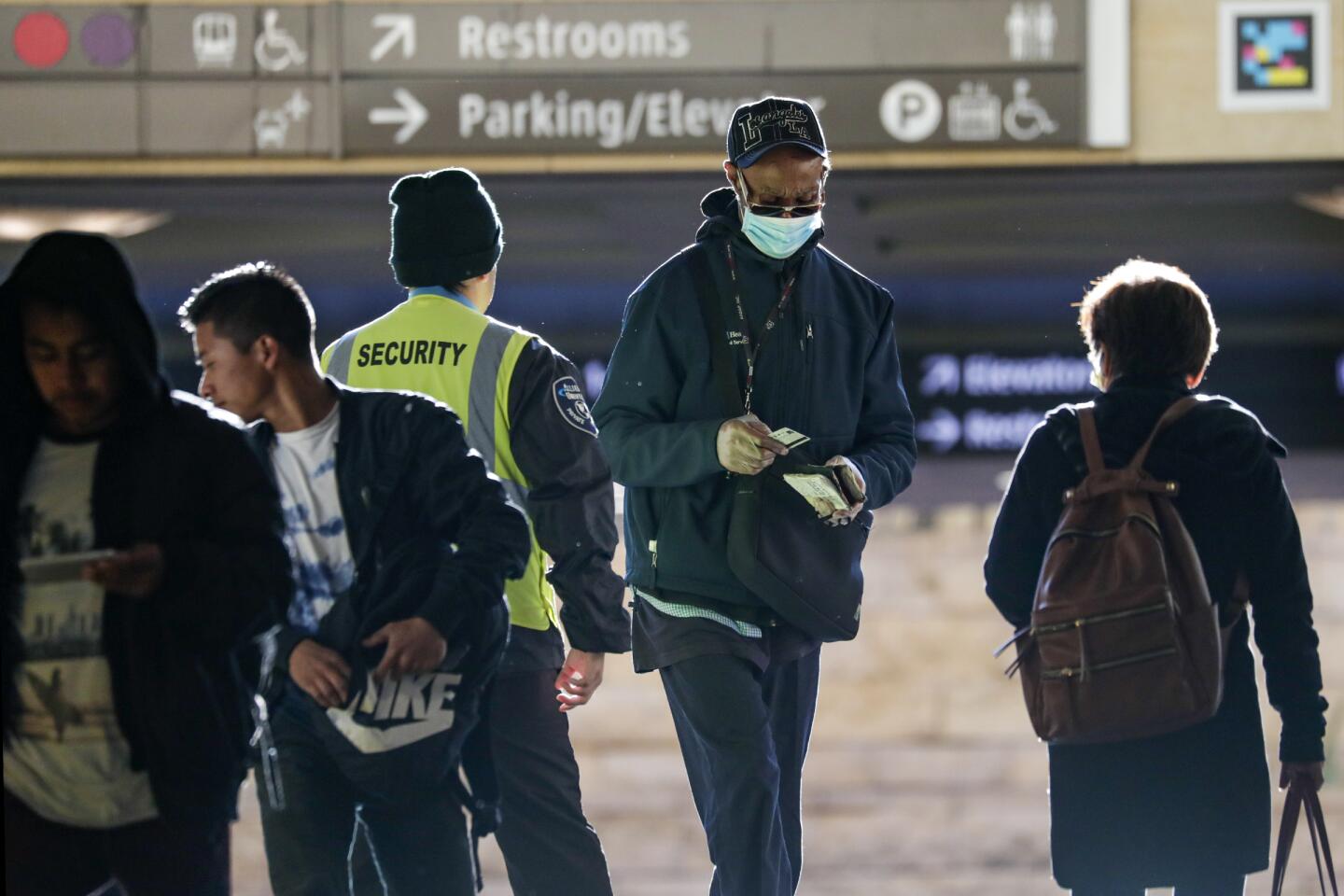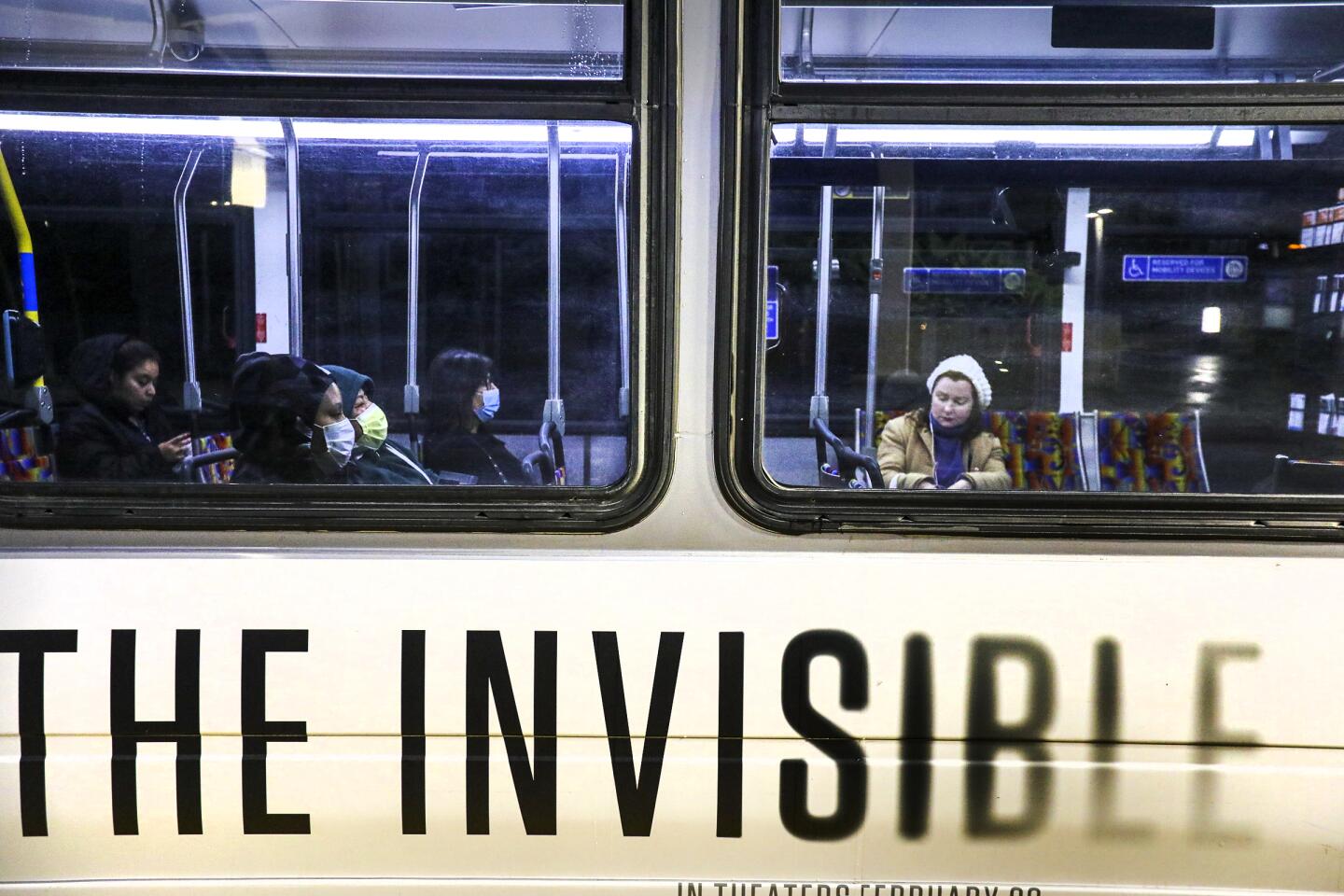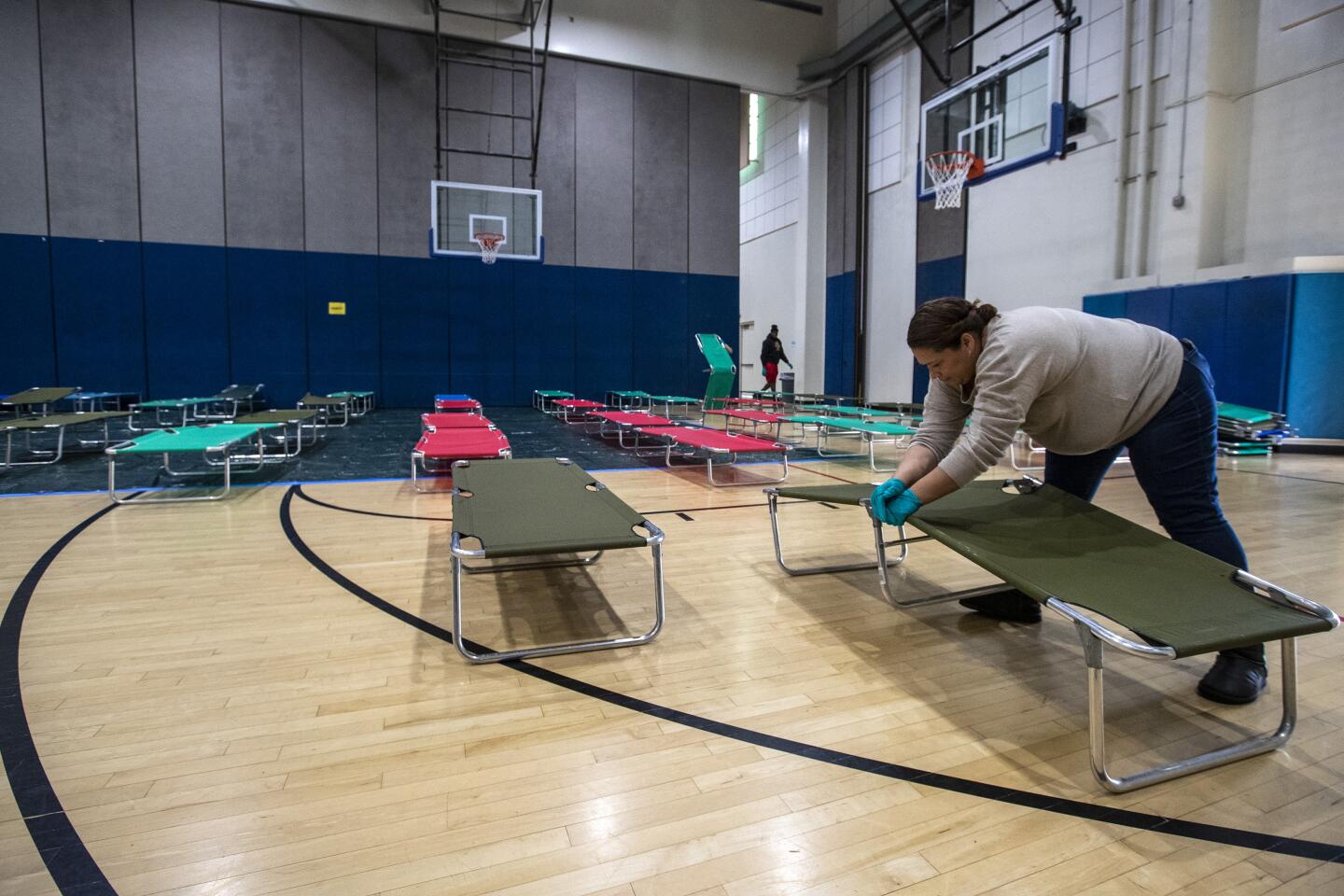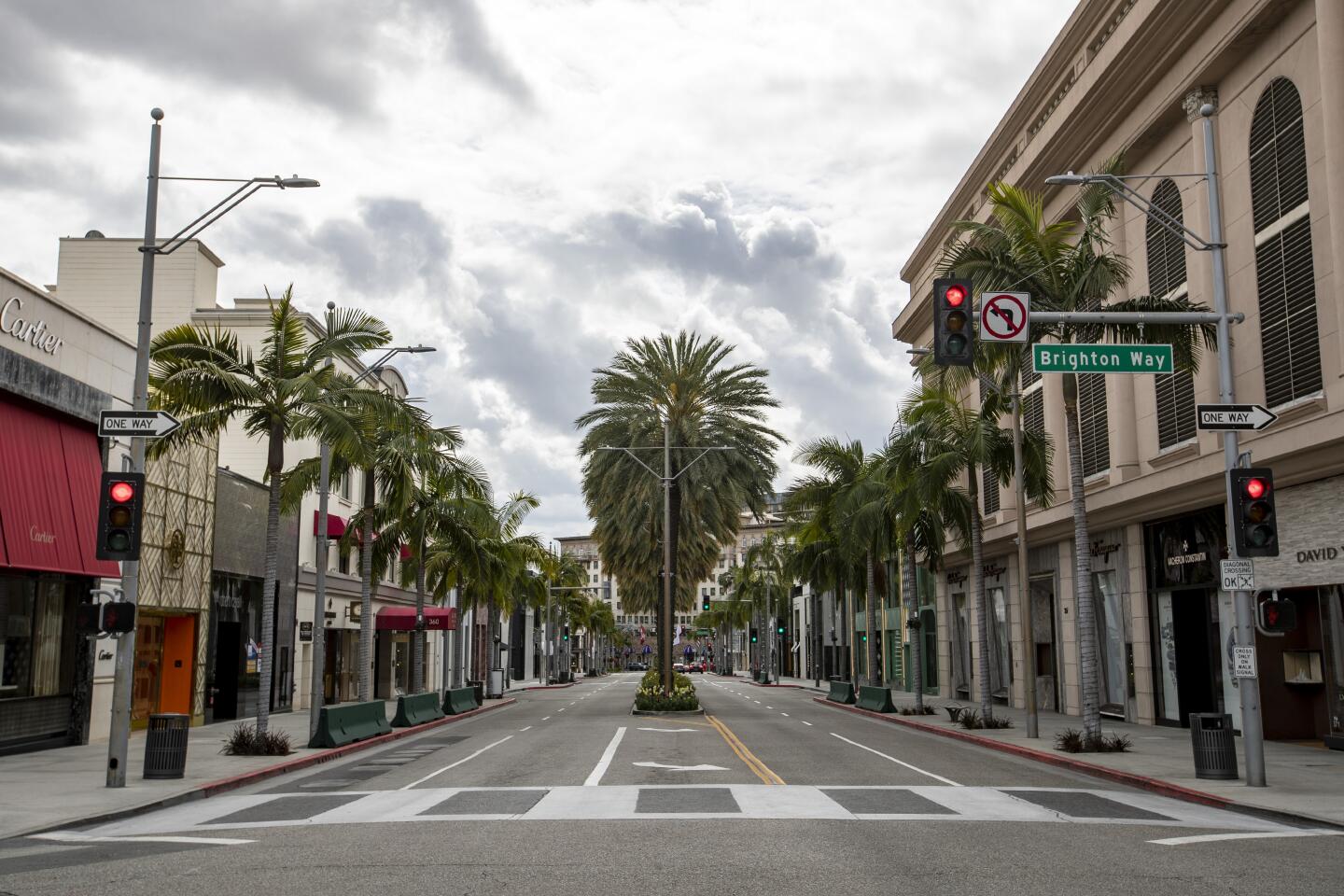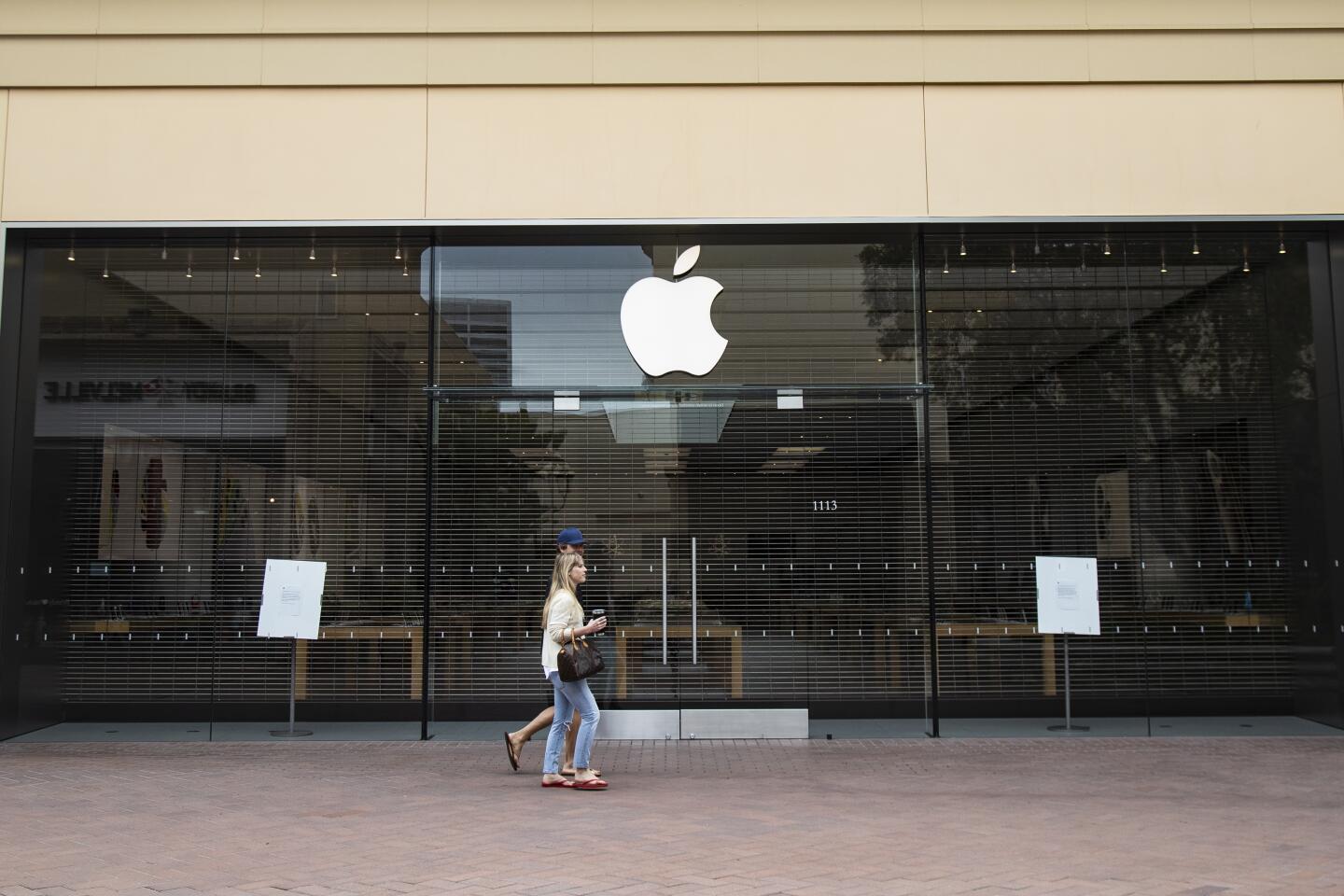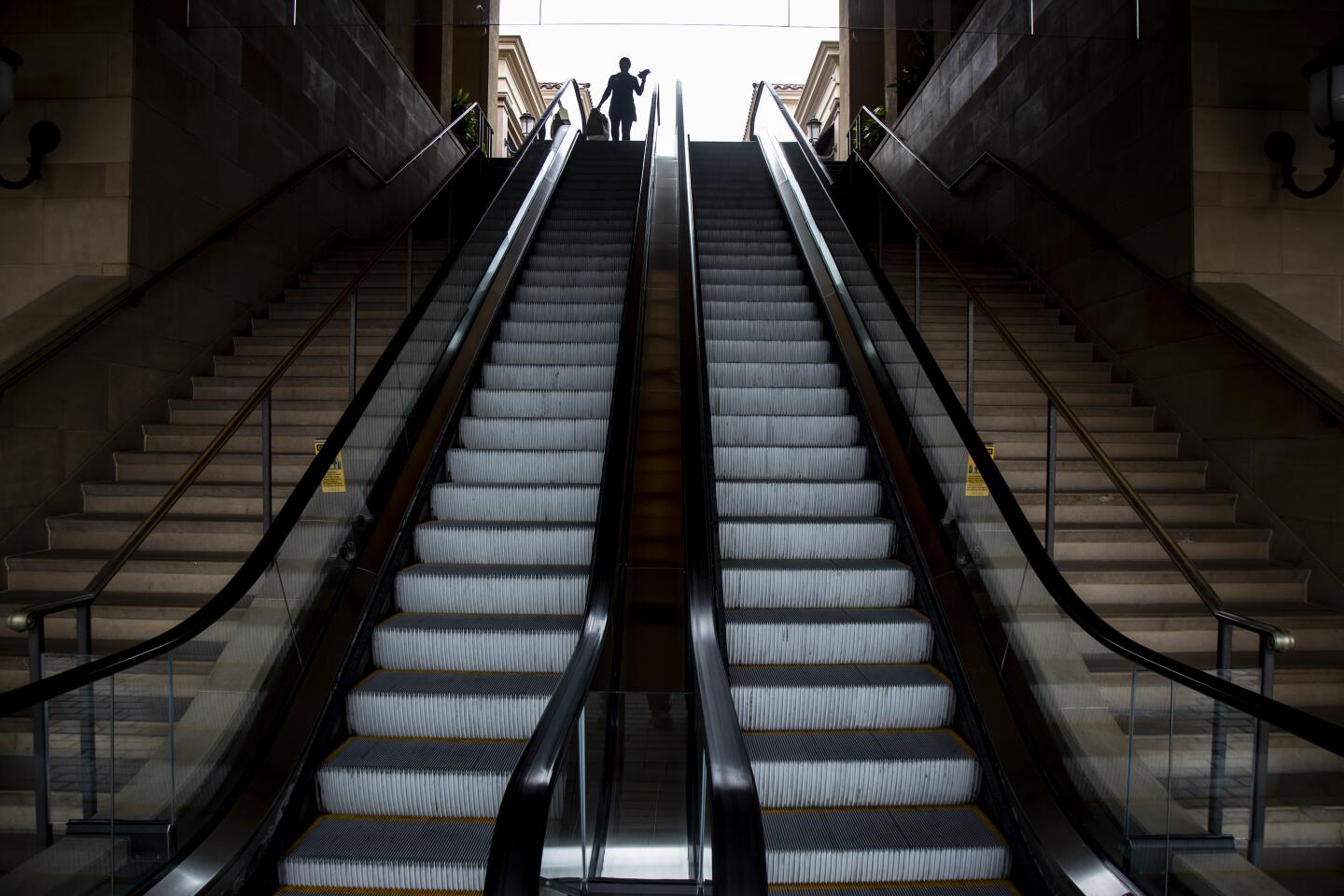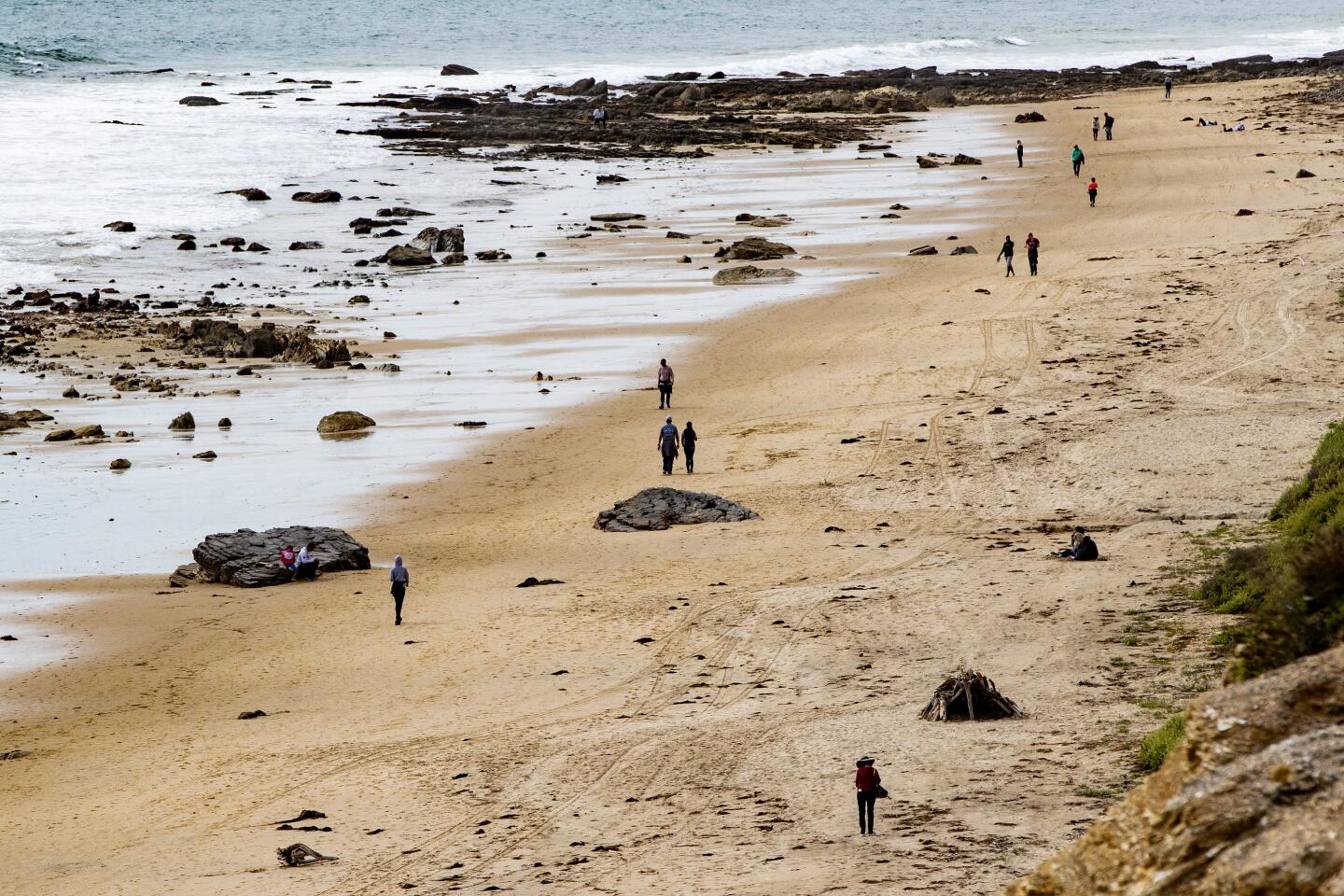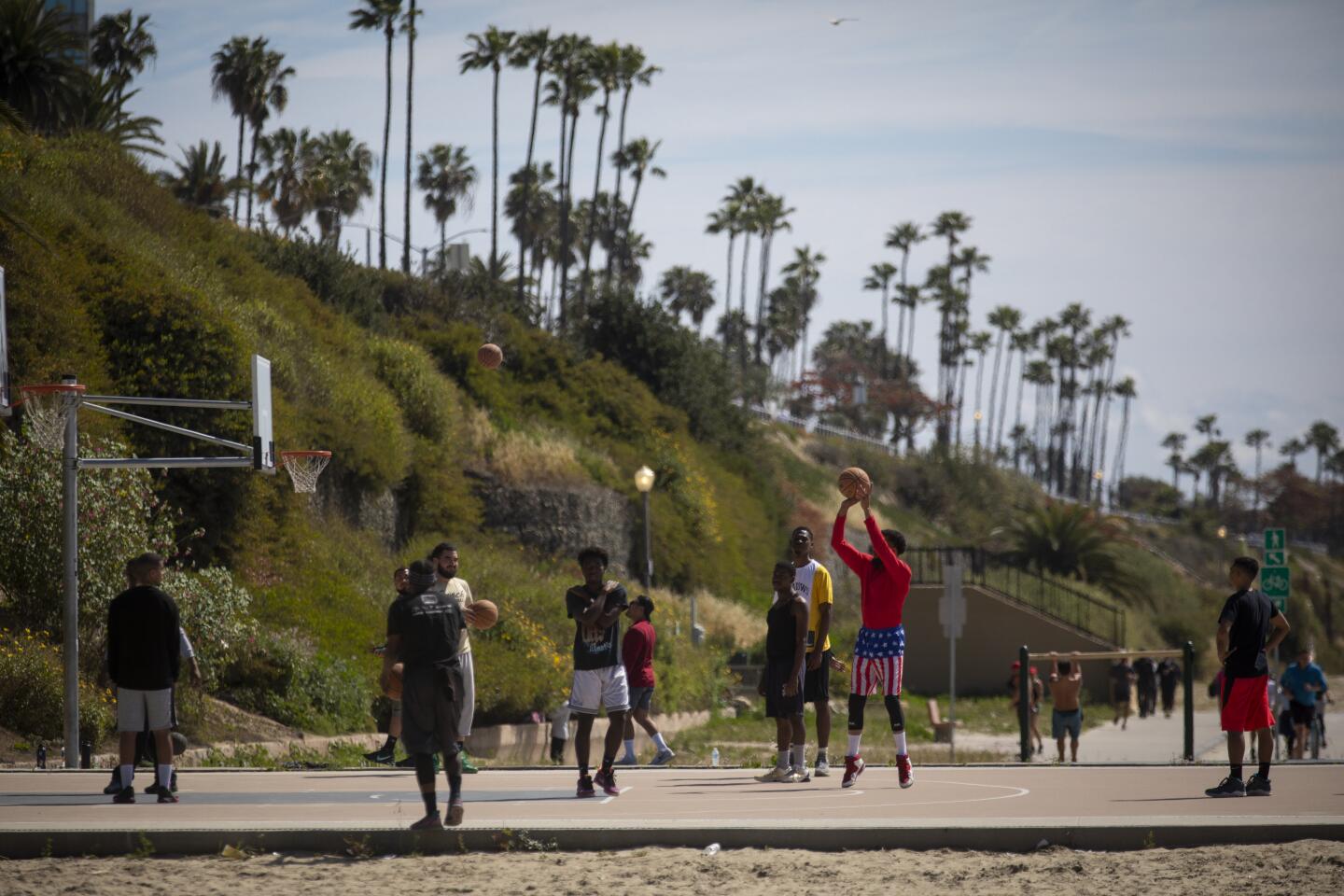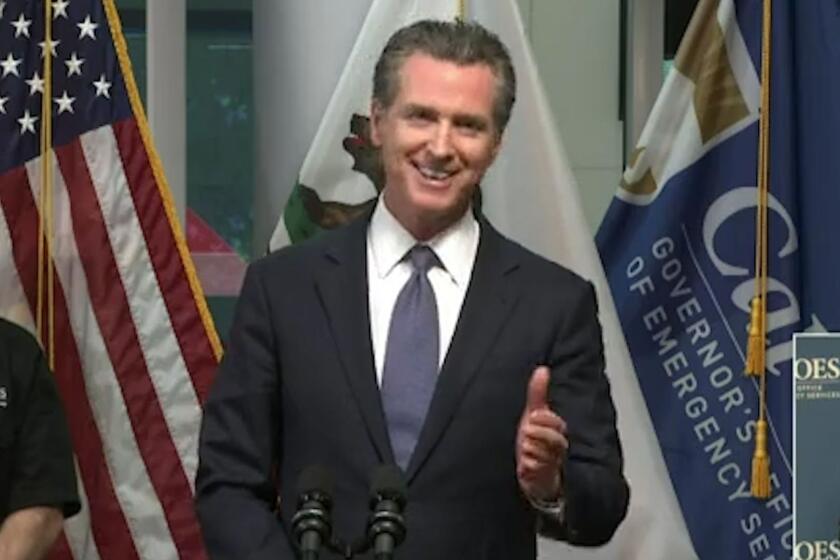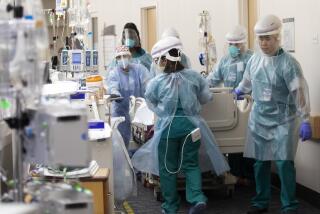L.A. takes drastic action on coronavirus, closing all nonessential businesses
Los Angeles officials on Thursday took dramatic new steps to severely curtail public movement in a bid to slow the spread of the novel coronavirus.
The restrictions came as the number of confirmed cases continued to grow and as officials said Los Angeles is running out of time to prevent a much more rapid spread.
“We must slow the number of new cases we have — we must,” said Barbara Ferrer, director of the L.A. County Department of Public Health. “Without slowing the number of new cases, we will for sure overwhelm not only our healthcare system but many other essential services as workers who are doing those essential services fall ill.”
The new Los Angeles County public health order requires all indoor malls, shopping centers, playgrounds and nonessential retail businesses to close and prohibits gatherings of more than 10 people in enclosed spaces.
The city of Los Angeles issued a significantly more restrictive order, requiring all nonessential businesses to close, with companies able to operate only through work-at-home arrangements. The order also bans all public gatherings of any size outside homes.
Gov. Gavin Newsom has ordered all Californians to stay home and asked Congress for $1 billion to support the state’s fight against the coronavirus.
“All businesses, including museums, malls, retail stores, for-profit companies and nonprofit organizations, must stop operations that require workers to be present in person,” Mayor Eric Garcetti said. “No public and private gatherings of any size that would occur outside of a single home will be allowed, with clear exceptions.”
Garcetti said residents should leave home only for essential activities and needs, including getting food; caring for a relative, friend or child; getting necessary healthcare; or going for a walk in the neighborhood.
“Nobody is locked down, and we encourage you not to be locked,” he said. “This is not ‘shelter in place’ like a school shooting, this is stay at home because you’re safer at home. And the only people who should be leaving home and going out are those whose jobs are critical to the safety, the health and security of the city, as well as the economy of recovery for us and the nation during this crisis.”
Gov. Gavin Newsom has ordered Californians to stay at home. With businesses and popular destinations closed, The Times’ Luis Sinco documented the surreal scenes.
Essential businesses include grocery stores, food banks and outdoor farmers markets; schools and child care; businesses that provide food, shelter, social services and other necessities of life for economically disadvantaged people; gas stations; banks and financial institutions; hardware stores; plumbers and electricians; healthcare operators and facilities; transportation services; and residential facilities.
But these businesses must comply with the order’s social distancing and hygiene requirements, including providing access to hand-washing facilities with soap and water or with hand sanitizer that contains at least 60% alcohol.
Coronavirus: Here are the rules now that Newsom has ordered all Californians to stay at home
The orders come at a time when the coronavirus outbreak seems to be far from slowing in Los Angeles.
Health officials Thursday reported the county’s second death, with the total number of confirmed cases rising by 40 overnight to 230.
A 34-year-old man who tested positive for the coronavirus after visiting the Walt Disney World Resort in Florida and traveling through Los Angeles International Airport this month died Thursday at a hospital in Pasadena, according to medical and government sources.
The Glendora man, who spent nearly a week on a ventilator, had underlying medical conditions, including asthma and bronchitis, the sources said.
Health officials did not name the man, but on Thursday, the sister of a 34-year-old Glendora man posted on Facebook that her brother “went to be with Jesus this morning.”
The latest updates from our reporters in California and around the world
“He suffered a lot and put up a good fight,” she said.
For six days, his sister took over his Facebook page, posting updates about his rapidly deteriorating condition. He had sent her a text message, she wrote Sunday, that said, “Tell my friends.”
The man had a history of asthma and frequent bronchitis as a child, but he had not needed an inhaler for years, his sister wrote.
“He beat testicular cancer in 2016 with surgery alone,” she wrote Sunday. “2020, he will beat COVID-19.”
Officials continue to stress that the best way residents can protect themselves and others from contracting the coronavirus that causes COVID-19 is to follow the city and county’s guidance to remain isolated.
Under the city’s new order, officials said residents are permitted to:
- Go to the grocery store;
- Go to the pharmacy to pick up medications and other healthcare necessities;
- Go to medical appointments (check with your doctor or provider first);
- Take a walk, ride your bike and be in nature for exercise — just keep at least six feet between you and others in the community;
- Walk your pets and take them to the veterinarian if necessary;
- Help someone to get necessary supplies.
Residents are not allowed to:
- Go to work unless providing essential services as defined by the order;
- Visit friends and family if there is no urgent need;
- Maintain less than six feet of distance from others when you go out;
- Travel to or from a job outside the city, unless to perform essential activities;
- Travel to or from a vacation home outside the city;
- Visit loved ones in a hospital, nursing home, skilled nursing facility or other residential care facility.
These are considered essential services:
- City/county government services
- Healthcare providers
- Food and grocery service
- Hardware stores and nurseries
- Plumbers, electricians, exterminators, custodial/janitorial workers, handyman services, funeral home workers and morticians, moving services, HVAC installers, carpenters, landscapers, gardeners, property managers, private security personnel and others who provide services to maintain the safety, sanitation and essential operation of properties and other essential activities
- Banks
- Organizations and businesses that provide food, shelter, social services and other necessities of life for economically disadvantaged or otherwise needy individuals (including gang prevention and intervention and domestic violence agencies)
- Laundromats/laundry service
- Newspapers, magazines, television, radio, podcasts and other media services
- Educational institutions, including public and private K-12 schools, colleges, and universities — for purposes of facilitating distance learning or performing essential functions provided that social distancing of six feet per person is maintained to the greatest extent possible
More to Read
Sign up for Essential California
The most important California stories and recommendations in your inbox every morning.
You may occasionally receive promotional content from the Los Angeles Times.
